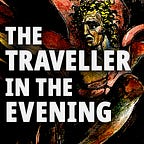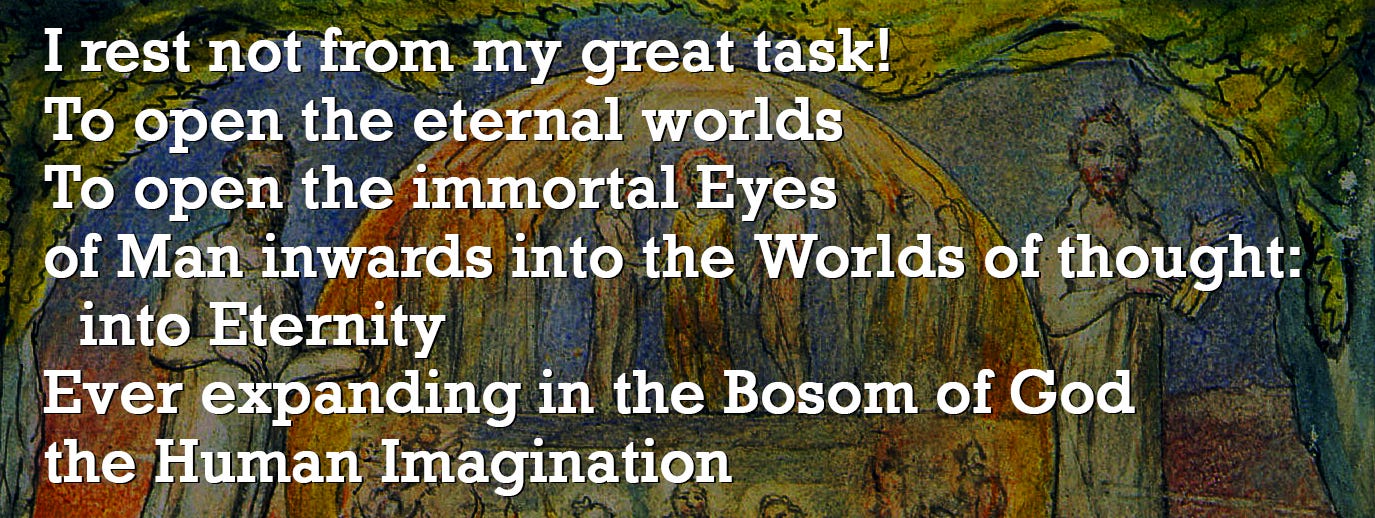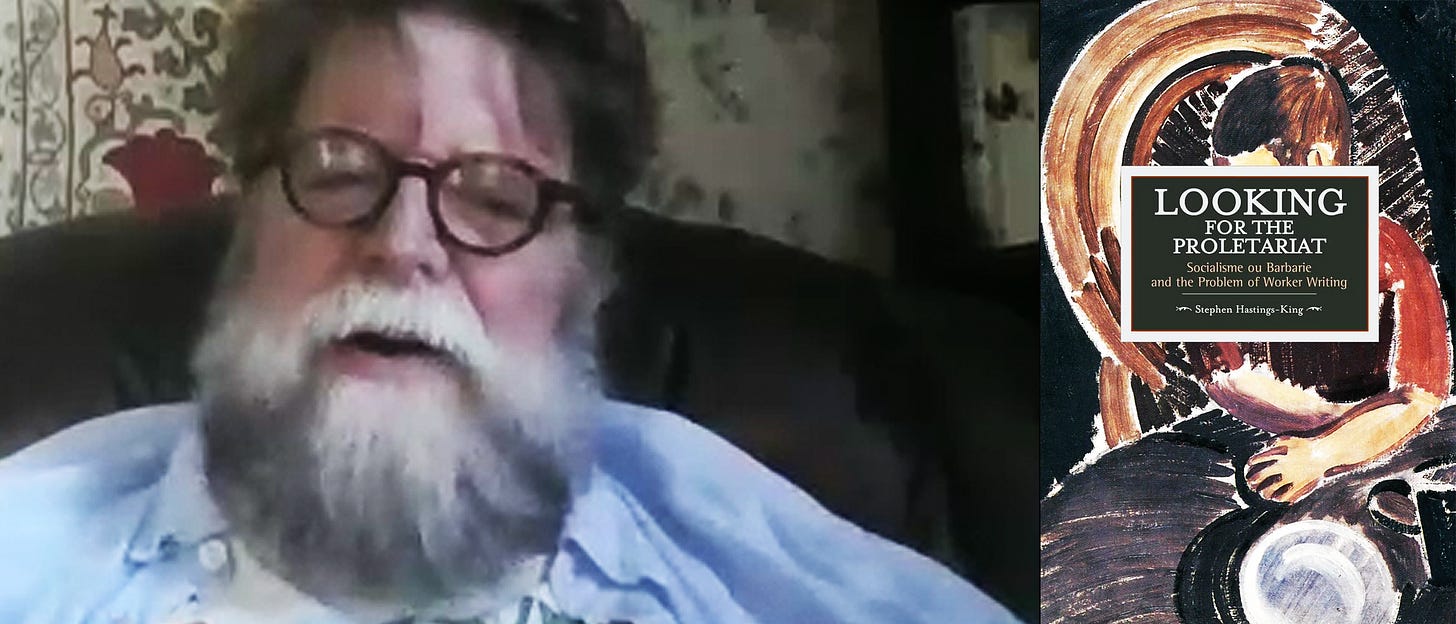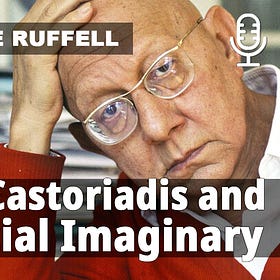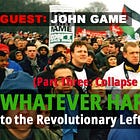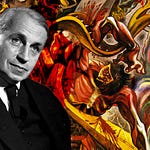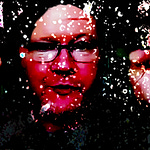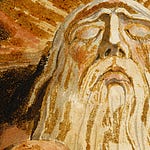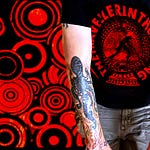[Imagination is] that in virtue of which an image occurs in us.
Aristotle, De Anima1
History is essentially poiesis, not imitative poetry, but creation and ontological genesis in and through individuals doing and representing / saying.
Cornelius Castoriadis, The Imaginary Institution of Society2

Back in August 2024, I interviewed Joe Ruffell about the revolutionary career of the Greek / French activist, Cornelius Castoriadis, founder of the workerist group, Socialisme ou Barbarie (1949-1965), who broke with Marxism in the mid-60s in order to develop a theory of political autonomy which increasingly drew on his insights into the central role of the creativity of the producers under capitalism.
Castoriadis generalised this insight into arguably the most radical theory of the imagination known to either politics or philosophy, though there are traces of it in Aristotle, Kant, Heidegger and others. The radicalism and depth of Castoriadis’s idea of the imagination have long been of interest to us here at The Traveller in the Evening as an analogue of Blake’s similarly radical idea of the imagination, according to which “The eternal body of Man is The Imagination / God himself / that is [Yeshua] Jesus.”3
The overlap and connection between Blake and Castoriadis is suggestive at least, and hints at deeper symmetries. It is the long-term ambition of the Traveller in the Evening to explore these mirrorings and affinities, and to that end, we thought it time to follow up on Joe’s podcast with a follow-up Q&A with Castoriadis scholar, Stephen Hastings-King, author of Looking for the Proletariat: Socialisme ou Barbarie and the Problem of Worker Writing.
Such an exploration aims to find what support there is in Castoriadis for illuminating how Blake’s imagination is fuel for more than the plastic arts, but underlies the construction of social reality itself, so that a collective Blakean revolution in the imagination would revolutionise society.
Topics discussed: introduction to Castoriadis | the Marxist imaginary | Pattern Recognition Research Collective | Castoriadis vs. fascists and communists in Athens | Zinovievites and syndicalists in the PCI | bureaucratic capitalism or degenerated workers state | Socialisme ou Barbarie formed 1949 | Maurice Brinton, Ken Weller and Solidarity | Castoriadis after Marx | the project of autonomy | wildcatting | 1956 Hungarian uprising | post-Marxism | on the content of socialism | direct democracy | psychoanalysis and the imaginary institution of society | Guy Debord and Jean-Francois Lyotard | democracy and philosophy born together in Greece | Billancourt | interlocked workers councils | auto-nomos | reason and energy, imagination and the instituted imaginary | imagination as the devil | heteronomy as determinism, as Urizen | visions eascape the instituted imaginary | no desire without imagination | magma | society unable to recognise its own auto-institution | the unspoken sets of preconditions that enable desire | hellenophilia, against hellenophilia | Athenian germs | Sparta and Cybele | on Heidegger’s Greek | the so-called Dark Ages | the voice of honest indignation | neither perception nor reason | Wordsworth’s fancy | the unspoken, unformalizable dimension on which formalized things depend | Western philosophy lacks the imagination | relaunching philosophy | aggressively constructing dialogue | autonomy or original sin | human perfection and the Council of Nicaea | church against Galileo | Milton, the light and the dark | the Communist Historians Group, Blake and the Ranters | implosion of the Marxist imaginary | a huge humanizing factor for Western capitalism | diamat dy’in out | competitions for symbolic capital in various academic contexts | the cognitive geography of finance
Stephen Hastings-King’s Castoriadis Reader
The following essays were recommended by Stephen as your shortest way into seeing what Castoriadis said about the main topics discussed in the podcast.
^ Most of Socialisme ou Barbarie esp Modern Capitalism and Revolution
^ Redefining Revolution: Solidarity pamphlet (19pp)
The Imaginary Institution of Society
Marxism and Revolutionary Theory (158pp)
Crossroads in the Labyrinth Pt1
Modern Science and Philosophical Interrogation (108pp)
Crossroads in the Labyrinth Pt2: Human Domains
Discovery of the Imagination (49pp)
The Greek Polis and the Invention of Democracy (59pp)
Ontological Import of the History of Science (55pp)
The Logic of Magmas and the Question of Autonomy (49pp)
Crossroads in the Labyrinth Pt3: World in Fragments
Power, Politics, Autonomy (42pp)
State of the Subject Today (54pp)
Crossroads in the Labyrinth Pt4: The Rising Tide of Insignificancy
The Greek and the Modern Political Imaginary (35pp)
The Athenian Democracy: False and True Questions (17pp)
Culture in a Democratic Society (18pp)
The Ethicists’ New Clothes (49pp)
Democracy as Procedure and Democracy as Regime (21pp)
Crossroads in the Labyrinth Pt5: Done and to Be Done
Merleau-Ponty and the Weight of the Ontological Tradition (57pp)
Imaginary, Imagination, Reflection (78pp)
Done and to be Done (99pp)
Crossroads in the Labyrinth Pt6: Figures of the Thinkable
Aeschylean Anthropogony and Sophoclean Self-Creation of Man (34pp)
Notes on a Few Poetic Means (37pp)
** For news of all things Castoriadis, go to Agora International.
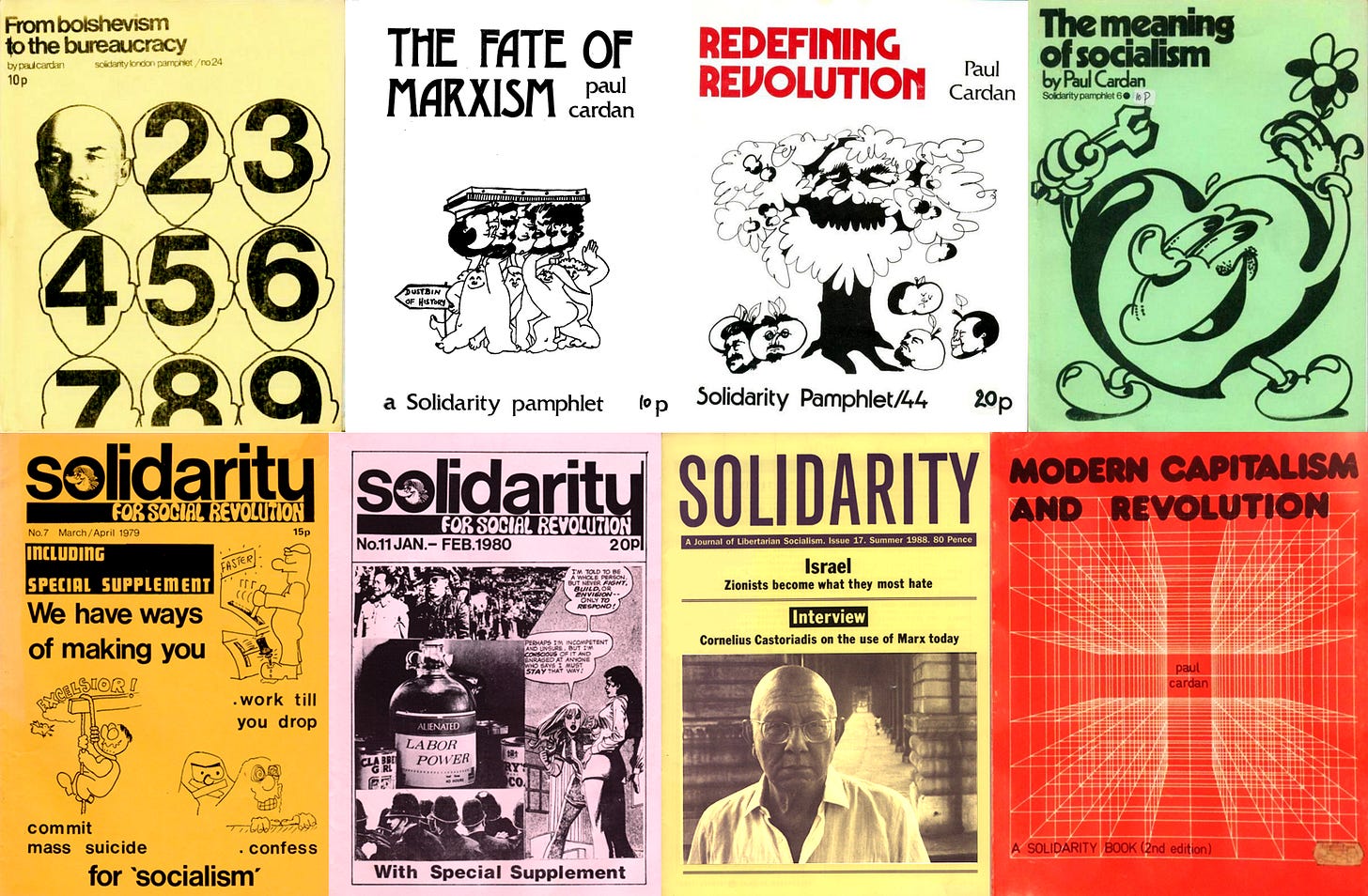
William Blake’s Wild Imagining
Man is all Imagination
God is Man & exists in us & we in him
William Blake4
Energy is the only life and is from the Body and Reason is The bound or outward circumference of Energy. Energy is Eternal Delight.
WIlliam Blake5
This is not the place to discuss Blake’s concept of imagination in detail, except to say that when he describes the imagination as “the body of the Saviour, the True Vine of Eternity,”6 we are being invited to see the imagination as the primum mobile of mind, the unmoved mover, that which is not determined elsewhere within mind. In this conception, the imagination is at the basis of the totality of mind. This is a scandal to rationalising philosophy, which wants the seat of reason to be within reason itself, not in imagination. In Castoriadis, on the other hand, the imagination is at the root of the entire social imaginary. These two positions may amount in practice to the same thing, or something much the same as far as the implications for politics go.
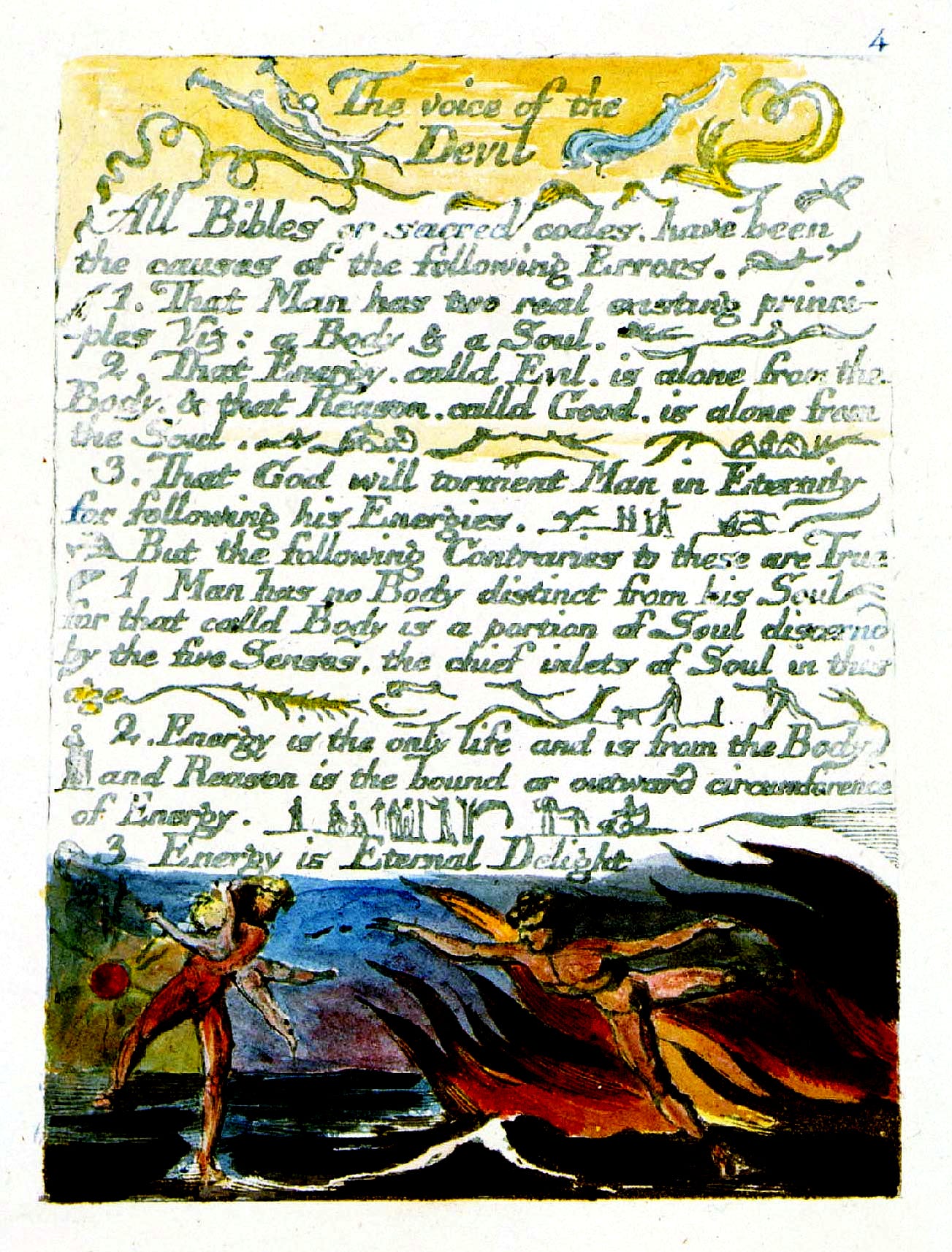
Final Thoughts from Comrade Cardan
Before Closing the Meeting
I think we are at a crossroads in history... One path… leads to the loss of meaning, the repetition of empty forms, conformism, apathy, irresponsibility, and cynicism, along with the growing takeover of the capitalist imaginary of unlimited expansion of ‘rational mastery’… and of technoscience racing ahead on its own, and obviously a party to domination by that capitalist imaginary. The other path would have to be opened up; it has not been marked out at all. Only a social and political awakening, a renaissance, a fresh upsurge of the project of individual and collective autonomy… can cut that path. This would require an awakening of imagination and of the creative imaginary.
Cornelius Castoriadis, Figures of the Thinkable7
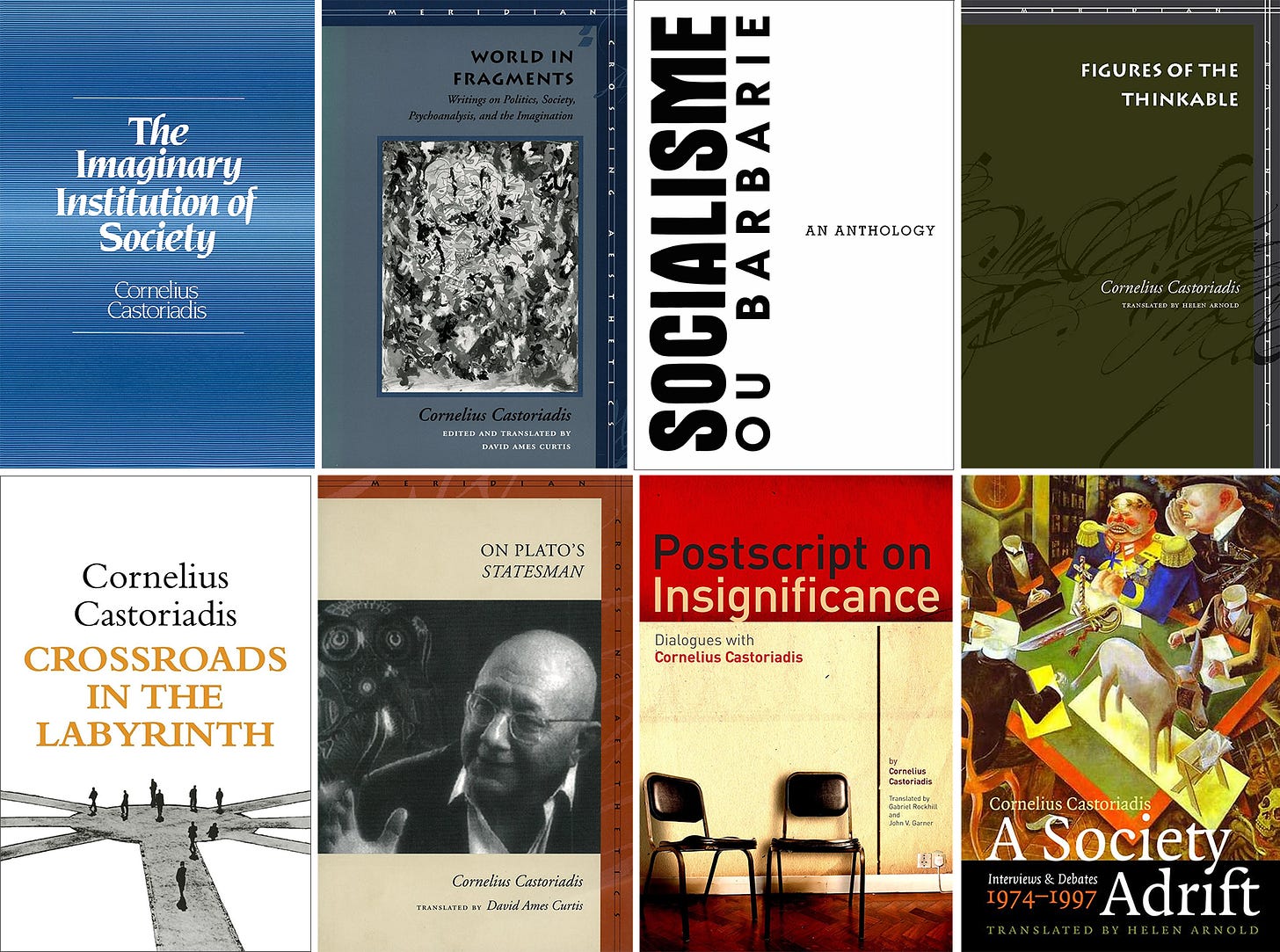
What horrifies… representatives of traditional philosophy… is the necessity of acknowledging the existence of a collective imaginary, and for that matter, of a radical imagination in singular human beings, as a creative force. Creation here means creation ex nihilo, bringing into being a form that was not there before, the creation of new forms of being. It is ontological creation... Why is philosophy, in the forms we have inherited, unable to acknowledge the fact of creation? Because that philosophy is either theological, and therefore reserves creation for God… or it is rationalist or determinist, and therefore obliged either to infer everything that is from first principles... But creation belongs to being in general… and creation belongs, densely and massively, to socio-historical being.
Cornelius Castoriadis, Figures of the Thinkable8
Stephen’s Bio
For the past few years, I've been focused on Pattern Recognition: A Research Collective. In that context, I've been using the social imaginary and related notions drawn from Castoriadis (inter alia) to make sense of the pathologies specific to contemporary US finance-capitalism. Financialized higher ed had been our particular focus. We assembled a collection of our writing to serve as a starting point and published it here:
The piece on the endowment investment strategy known as The Yale Model gives an idea of the work I've been doing. PRRC's publication venue has been silent for a couple years but will be relaunching in September. Neofascism USA in power has inspired us to broaden (and radicalize) what we're doing. The main consultancy page for Pattern Recognition: A Research Collective is here.
My background includes a Ph.D. in Modern European History from Cornell. I have worked extensively on Socialisme ou Barbarie. My book, Looking for the Proletariat: Socialisme ou Barbarie and the Problem of Worker Writing is available here. My other work can be found via searching the web. I also make short fictions and have been active in experimental music
So if your web search pulls back heterodox-seeming results don't despair.
Blake, Castoriadis and the Social Imaginary
For Blake, the imagination is the stuff from which the New Jerusalem is made. Can the post-Marxist, Cornelius Castoriadis, help us make sense of this with his idea of the 'social imaginary'?
Cornelius Castoriadis: Notes on the Social Imaginary
Notes to accompany the podcast with Joe Ruffell about Castoriadis: A collection of notes written by the post-Marxist Cornelius Castoriadis on the topic of the imagination, and his concept of the social imaginary.
Aristotle, De Anima (On Soul) iii 3, 428aa1–2.
Cornelius Castoriadis (1975), The Imaginary Institution of Society, Cambridge: Polity Press, 1997, pp3-4.
William Blake, The Laocoön, in David Erdman (ed), The Complete Poetry and Prose of William Blake, New York: Random House, 1988 (1965), E273. All subsequent page references to Blake in Erdman are given as Enn.
Cornelius Castoriadis (1999), Werner Hamacher (ed), Helen Arnold (tr), Figures of the Thinkable (2007) [Figures du Sensible: les carrefours du labyrinthe]. Stanford: Stanford University Press, 2007, p86.
Cornelius Castoriadis (1999), ‘Imaginary and Imagination at the Crossroads’, p73.


